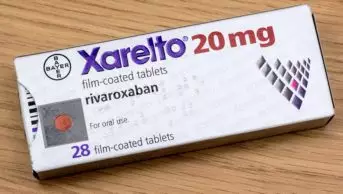
Shutterstock.com
UK patient involvement in clinical trials will diminish post-Brexit making manufactures less likely to want to invest here, MPs on the House of Commons Health Select Committee were told on Tuesday, 19 December 2017.
But MPs also heard that unlocking the potential of patient data held by the NHS may be enough to persuade the pharmaceutical industry to continue to look to the UK for its involvement in developing new drugs and mitigate any disadvantages from leaving the European Union (EU).
Emma Greenwood, director of policy at Cancer Research UK said: “We need to unlock the data in the NHS…so they [drug companies] want to use the UK as its laboratory. And there is a real drive to push and make that happen.”
Greenwood was speaking at the committee’s ongoing inquiry into the impact of Brexit on the UK’s drugs supply chain and the regulation of medicines after Brexit.
Her comments about the potential of NHS data to protect the UK’s contribution to clinical trials, were endorsed by senior drug company figures who also gave evidence to the committee on 19 December.
Hugo Fry, UK general manager of Sanofi suggested that finding itself outside the EU could create a “potential opportunity” if the UK could “lighten the burden of administration” around clinical trials.
He told MPs: “Any country that is good at science and can rapidly enrol patients and can get them through…then companies like us… would look to countries like that and they would get a bigger allocation of patients in a clinical development programme.”
Phil Thomson, president, global affairs at GlaxoSmithKline, said if it was possible to make the UK “the best lab in the world”, it would give it a competitive edge.
Implementing the government’s current life sciences strategy in partnership with industry and “capitalising” on the potential of the NHS was “really important”, he said.
Earlier, Alan Boyd, president of Faculty of Pharmaceutical Medicine, warned MPs that leaving the EU would damage research.
“It will certainly have an impact on the high quality research that we get involved in,” he said.
From the clinician’s perspective, it means they would miss out on being kept up to date around the potential advantage or disadvantages of a new drug, he told MPs.
He said the UK was not the “largest market in the world” for drugs sales, so it ran the risk post-Brexit of becoming less attractive to drug companies looking to test their drugs and invest.
The issue, he said, was how to make most use of the NHS to create more clinical research.
MPs heard that it was crucial to continue collaborating in research and development after the UK leaves the EU.
Greenwood said that 25% of cancer UK research projects relied on collaboration with other EU countries. Boyd revealed that while the UK could support phase one trials on its own as well as early investigations, it relied on collaboration from outside its own borders for phase II and phase III drug trials.
Hugh Taylor, co-chair of the Brexit Health Alliance — a campaigning organisation that brings together the NHS, medical research, industry, patients and public health organisations — said that currently, there was commitment from the UK and the EU to continue collaboration.
He said the contribution the UK had made in the past to public health and patient safety was “a statement of fact”, but he added “it would be a real loss to lose that sense of collaboration.”


